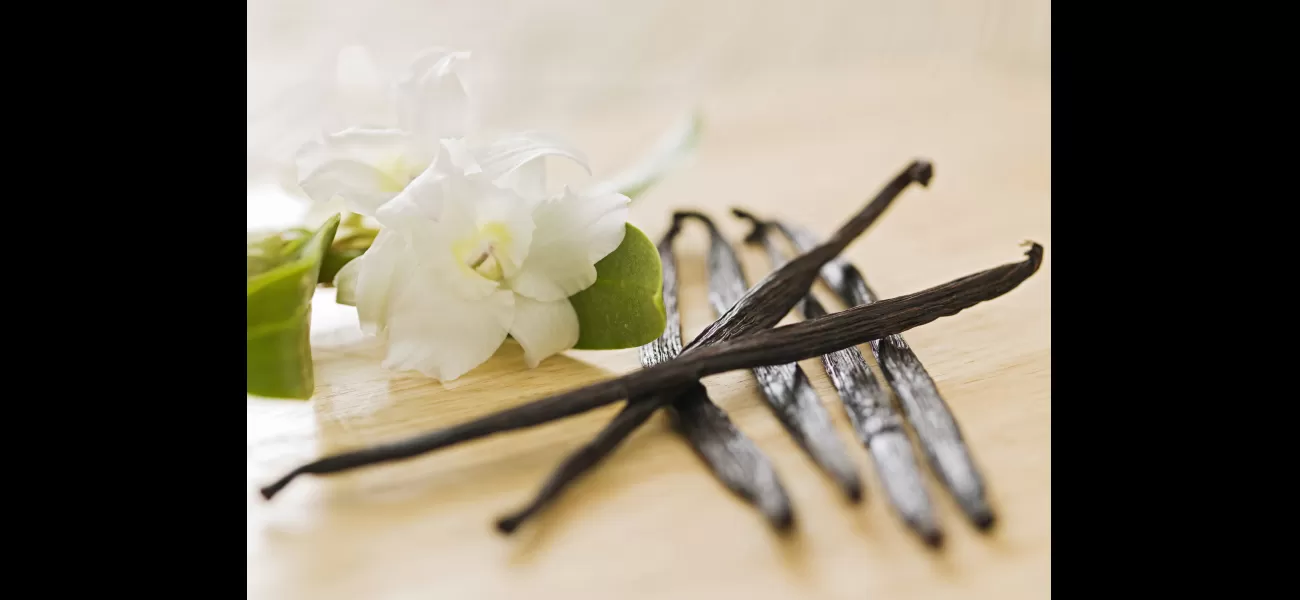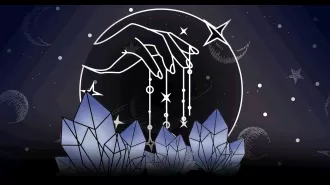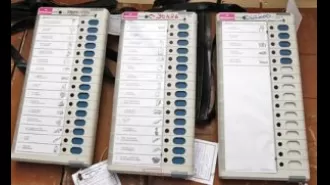A beloved fragrance is at risk of disappearing, along with sponge cake.
There is a musky substance called castoreum that could be used if the beaver population declines.
August 6th 2024.

The delicate and delicious pods that we know as vanilla are in danger of disappearing. In recent years, the word "vanilla" has been associated with being basic, bland, and boring. However, this negative connotation may be due to the fact that many people take vanilla for granted, not realizing its true value until it's gone. This tropical orchid, which is the source of vanilla, is facing threats that could lead to its extinction.
One of the biggest challenges for vanilla production is its sensitivity to changes in temperature. As a result, it can only be grown in a few countries, and the process is labor-intensive as it requires hand pollination. If vanilla does go extinct, one of the alternatives for its flavor is a musky substance called castoreum, found in the glands near a beaver's anus. However, this is not a likely option for flavoring our beloved Victoria Sponge.
A recent article in the New York Times highlighted the possible fate of vanilla, noting its use in a wide range of products such as sweets, pharmaceuticals, mosquito repellents, seltzers, makeup, and hair products. The risks facing vanilla have been a cause for concern for some time. Climate change, floods, droughts, and the decline of natural habitat have all made it difficult for the plant to thrive, putting both the plant and the farmers who grow it in a precarious situation.
Vanilla is not only an essential ingredient in desserts like sponge cakes, but it is also listed as an endangered species under the Convention on International Trade in Endangered Species of Wild Flora and Fauna. This is due in part to its limited genetic diversity. The majority of vanilla production takes place in Madagascar, Indonesia, and Mexico, but the vines and flowers are facing threats beyond just the changing climate. There have been numerous reports of "vanilla murders," as the spice's value has made it a target for criminals. To protect their crops, farmers have resorted to extreme measures like setting up tripwires and hiring armed guards.
A study published in Sustainability in 2022 revealed that global vanilla production has been significantly impacted by diseases and premature fruit drop, both of which are associated with prolonged droughts and high temperatures. The production of vanilla is particularly vulnerable to climate change due to its low genetic variation, limiting its ability to adapt to these challenges.
If we were to live in a world without vanilla, we would still be able to buy products flavored with vanilla essence, but the taste would not be the same. It is also likely that the flavor would have a less natural and bitter aftertaste. Vanilla extract and vanilla paste, which are made from real beans, would no longer be an option. Instead, we would have to rely on cheaper alternatives like artificially-made vanillin. Even the castoreum, which is a very expensive substitute, would not be a viable option.
In addition to being a beloved flavor in desserts like ice cream, cake, and chocolate, vanilla is also used in many other products such as vanilla Coke, skincare products, perfumes, candles, air purifiers, makeup, and mosquito repellents. A world without vanilla would mean saying goodbye to these products as well. Simply put, vanilla is irreplaceable, and its loss would have a significant impact on our lives. As we face the very real threat of losing this precious crop, it's important to remember the value and importance of vanilla in our lives.
One of the biggest challenges for vanilla production is its sensitivity to changes in temperature. As a result, it can only be grown in a few countries, and the process is labor-intensive as it requires hand pollination. If vanilla does go extinct, one of the alternatives for its flavor is a musky substance called castoreum, found in the glands near a beaver's anus. However, this is not a likely option for flavoring our beloved Victoria Sponge.
A recent article in the New York Times highlighted the possible fate of vanilla, noting its use in a wide range of products such as sweets, pharmaceuticals, mosquito repellents, seltzers, makeup, and hair products. The risks facing vanilla have been a cause for concern for some time. Climate change, floods, droughts, and the decline of natural habitat have all made it difficult for the plant to thrive, putting both the plant and the farmers who grow it in a precarious situation.
Vanilla is not only an essential ingredient in desserts like sponge cakes, but it is also listed as an endangered species under the Convention on International Trade in Endangered Species of Wild Flora and Fauna. This is due in part to its limited genetic diversity. The majority of vanilla production takes place in Madagascar, Indonesia, and Mexico, but the vines and flowers are facing threats beyond just the changing climate. There have been numerous reports of "vanilla murders," as the spice's value has made it a target for criminals. To protect their crops, farmers have resorted to extreme measures like setting up tripwires and hiring armed guards.
A study published in Sustainability in 2022 revealed that global vanilla production has been significantly impacted by diseases and premature fruit drop, both of which are associated with prolonged droughts and high temperatures. The production of vanilla is particularly vulnerable to climate change due to its low genetic variation, limiting its ability to adapt to these challenges.
If we were to live in a world without vanilla, we would still be able to buy products flavored with vanilla essence, but the taste would not be the same. It is also likely that the flavor would have a less natural and bitter aftertaste. Vanilla extract and vanilla paste, which are made from real beans, would no longer be an option. Instead, we would have to rely on cheaper alternatives like artificially-made vanillin. Even the castoreum, which is a very expensive substitute, would not be a viable option.
In addition to being a beloved flavor in desserts like ice cream, cake, and chocolate, vanilla is also used in many other products such as vanilla Coke, skincare products, perfumes, candles, air purifiers, makeup, and mosquito repellents. A world without vanilla would mean saying goodbye to these products as well. Simply put, vanilla is irreplaceable, and its loss would have a significant impact on our lives. As we face the very real threat of losing this precious crop, it's important to remember the value and importance of vanilla in our lives.
[This article has been trending online recently and has been generated with AI. Your feed is customized.]
[Generative AI is experimental.]
0
0
Submit Comment





